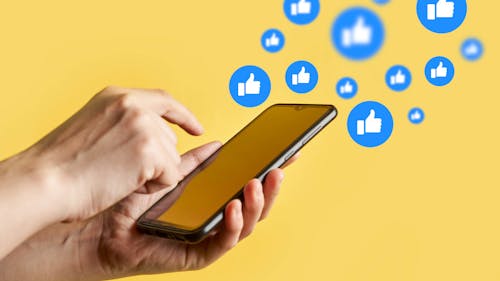More than just jokes: How society uses internet memes to emotionally cope

In late March, a large 1,300-foot container ship named The Ever Given got stuck in the Suez Canal, an artificial waterway in Egypt, and momentarily halted vital international trade.
In the following week, crews from Egypt and all over the world struggled to refloat the ship. But for the internet, this was a perfect moment to do what it does best: make memes.
As seen from the multitude of memes, people on social media highly identify with the images of the ship wedged across the canal and the efforts to dislodge it, a representation of everyone trying to stay afloat during this time.
But, to the dismay of social media onlookers (and the relief of ship owners and insurance companies), the vessel was finally set free early morning last Monday, clearing the traffic jam.
If this situation proves anything, it's that one of the best things about social media is its ability to generate and spread memes from virtually any situation, including global conflicts.
After all, nothing can match the instant gratification of scrolling past a meme mere minutes after a picture was released or a major event was reported.
In the past decade, memes have become a dominant medium in conveying news. They're clear and concise, but most importantly, they're relatable to mass audiences. And in the past year, they've been a great way to get a laugh out of the constant emotional turmoil spurred by the pandemic and a tumultuous political climate.
Just the last U.S. election cycle spurred months of constant memes. The meme of Sen. Bernie Sanders (I-Vt.) at the presidential inauguration earlier this year was among the most popular. Something about the image of Sanders sitting secluded with his arms crossed and mittens front and center resonated with everyone.
A campaign video of the senator wearing the same jacket and proclaiming, “I am once again asking for your financial support,” faced similar treatment months before, with people substituting just about anything after “I am once again asking.”
Rep. Alexandria Ocasio-Cortez (D-N.Y.) has also been the subject of memes. Back in 2019, a photo of the congresswoman questioning Mark Zuckerberg about Facebook’s role in false political advertising began making rounds.
In the photo, Ocasio-Cortez has her eyes squinted and fingers pinched, nodding to a gesture well used in the Italian community, birthing #ItalianAOC. Her Twitch livestream last October in which she played the viral game “Among Us” inspired memes as well on Twitter and TikTok, with people sharing one-liners and screengrabs.
The surge in stan culture has also undeniably increased the use of memes. People commonly use humor as a coping mechanism for their fears and anxieties, forming solidarity through shared sentiments.
While people may make arguments about how memes can obstruct the quality of news, they're generally harmless. Rather, memes serve as a way to create commentary on news, a means for younger generations to process the world around them and situations they can’t control.
When former President Donald J. Trump ordered the assassination of Iranian general Qasem Soleimani, social media promptly reacted in fear of a possible third world war. People posted videos on TikTok and Twitter expressing their fears and aversion to being drafted.
Other users ridiculed Generation Z’s incompetence in fighting in a war, joking about young people “pulling up” to the war to party. The fiasco even resulted in a World War III version of the “do what you need to cope” meme, which starts with “canceling plans is okay” and then runs through a list of outlandish actions that the narrator claims is justifiable.
These memes reflect a larger cultural mood, indicating salient points regarding current events. They also indicate issues that are important to those who create them, which often fall under mental health and social structures.
Given the current climate of our world, finding any reason to laugh helps alleviate fear and helplessness. Just because the first instinct people have when they learn of a major political or social event is to create a meme out of it doesn’t suggest a lack of care or dismissiveness. Making memes of politicians helps to humanize them and getting a kick out of a failed global infrastructure is quite benign.



